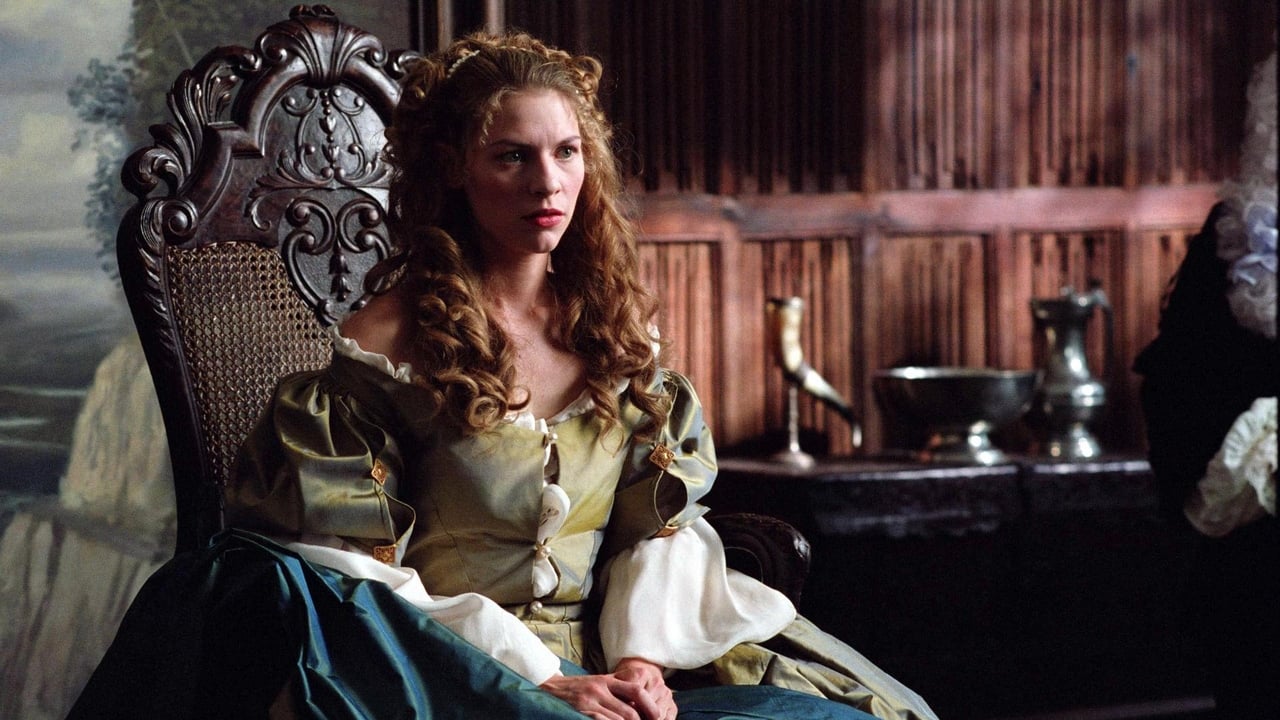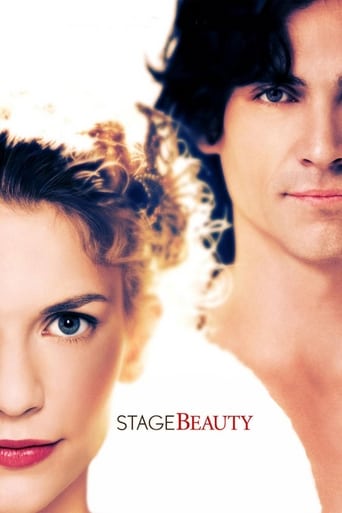

First of all, the film is one of the few that give detailed lifestyle of this early period in English history. You would think "a man plays a woman..that's a comedy" but it's not...it's a well made drama..These guys were celebrities back then. What got me the most was Billy Crudup's performance..this man can certainly act..I wish I could have some contact with him..I'd tell him "You are one of the best actors I've ever seen"...If I see him acting on a stage it would be great for sure.. Anyway..this is one of my best movies and certainly worth a watch. and yes it's an overlooked movie...like so many brilliant others.
... View MoreThe movie claims a historical accuracy it sure does not have. For starters, yes, it is true that Pepys said that Kynaston was the "most beautiful woman in London", yeah...but they forgot to say that Pepys meant the stage and in merely a handful of plays. Edward "Ned" Kynaston-the real one-was an acclaimed actor whose Hamlet was very appreciated. And yes, I said Hamlet, not Ophelia. It was not little feat, after all: he was competing in the same role with the most iconic actor of his time: Thomas Betterton. Kynaston was what perhaps we could perceive as a rarity these days, unless we speak of a really well seasoned and gifted actor but was not such in his time: a man who could perform a woman's role as well as a man's. Actors had to be ready to perform the role they were given or any other in the play the company was offering. That's a reality of acting this movie completely overlooks, favouring, instead, the "scandalous" and probably bisexual part of Kynaston's life-and who wasn't bisexual at that time?-, translating his supposed personal conflict into a stage conflict that never really happened: Kynaston continued his career in male roles. And that was it. It's funny the way they present Nell Gwynn: Nell was an "orange girl" at the theater before ever stepping the stage. It was her natural beauty and wit, plus her striving to survive which led her to the stage. That's where Charles II ever knew she existed: before that, Nell was just another "orange girl". And she did not become Charles' mistress before having passed through some illustrious hands. If Charles II decided to give way for women to act was because he had come from France, where actresses were not an uncommon occurrence. He wanted the same for the English stage. He wanted to see legs and pretty girls. It was not the other way around. Charles, very cunningly, disguised the disposition for women to be on stage on an appearance of morality: boys playing the roles of girls could arise dubious passions; so, to avoid it, girls should be girls and boys, boys, from early Restoration times. Just another one: they mention a long list of actresses at the beginning, I think. They mention Ann Bracegirdle. I beg your pardon? Bracegirdle was famous, yes, but a good thirty years after any of the ladies of the like of Nell Gwynn and Elizabeth Barry became famous. Strictly speaking, Ann Bracegirdle was not their contemporary. It doesn't make sense to include an actress of whom William Congreve said: "I could make of her a sinner, or she of me a saint" among the very first actresses of the English stage. And where's Mary Betterton, by the way? All in all, this movie is bad. From its historical "references", quite inaccurate, to the trama, it was a big disappointment. I was studying the Restoration-and still am-when I saw it, and the first thing I thought was that, for whomever wanting to get a little insight at the Restoration, not just of the monarchy, but of the English theater, this was not the place to go.
... View MoreI bought this movie because of Billy Crudup. I always enjoy his performances. But, once the movie started, I was mesmerized. The entire mood and theme of the movie; its looks, its pacing and its story, take us to a time that most of us knew little about.Theatre people, and theatre students knew about this and tittered over love scenes between two men. But, nobody thought about the moment when all that was over and women took to the stage. I venture to say most of us didn't know it wasn't more than socially incorrect for women to be in theatre at one time, but illegal.The story is beautifully written and transcends the issue of women versus men on stage and instead focuses on the acting ability of two such people. King Charles II, in the movie, states that the leading lady (Clare Danes) is the first and Crudup is the last (male to play a female, legally...at least in HIS time.) If you want a lovely view of post-Reformation England, theatre in general, you can see it all here. All this movie leaves out is the horrid smells theatre treated you to. It is that real.
... View MoreI quite enjoyed this, but I'm not wholly sure why.The story was a little muddled in places, at least in terms of consistency, motivation and the like. But the performances were mostly pleasing, not least Billy Crudup who came over as very engaging despite playing a character whose behaviour was at times gratuitously unpleasant.Rupert Everett was a hoot.I have a problem with Claire Danes. I like her, but I'm not convinced she's actually all that good an actress. This feeling seems to be driven by one of her facial expressions which gets massively overused (it shows up here, and also in Stardust and Little Women - I've seen all three films fairly recently), and it's the expression where she looks as if someone has just delivered themselves of the most offensively malodorous flatulence directly under her nose. I'm sure you know the one I mean - if you've seen any of those films, then you're bound to know. And it's an all purpose expression for anything bad, from mild worry to just survived a murder attempt. On the other hand, she does a creditable English accent (as does Crudup in this film).Oh, and I suspect that in Restoration England, it was most unlikely that anyone would say, "Get the f*** off my stage" notwithstanding the provenance of f*** as good old-fashioned Anglo-Saxon of the first order. An unwelcome anachronistic Americanism, as out of place as mammoths in Egypt.Whoops, I'm getting ahead of myself.....
... View More